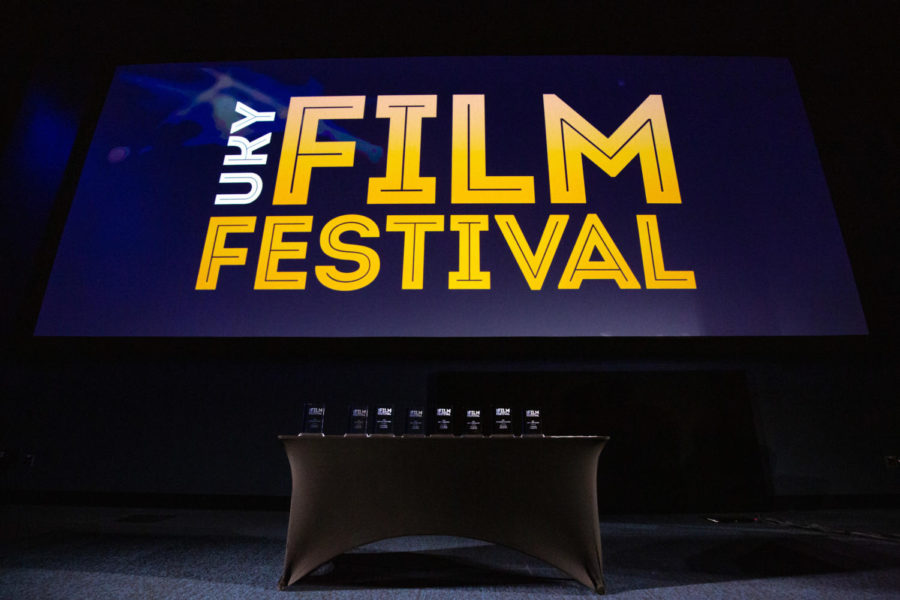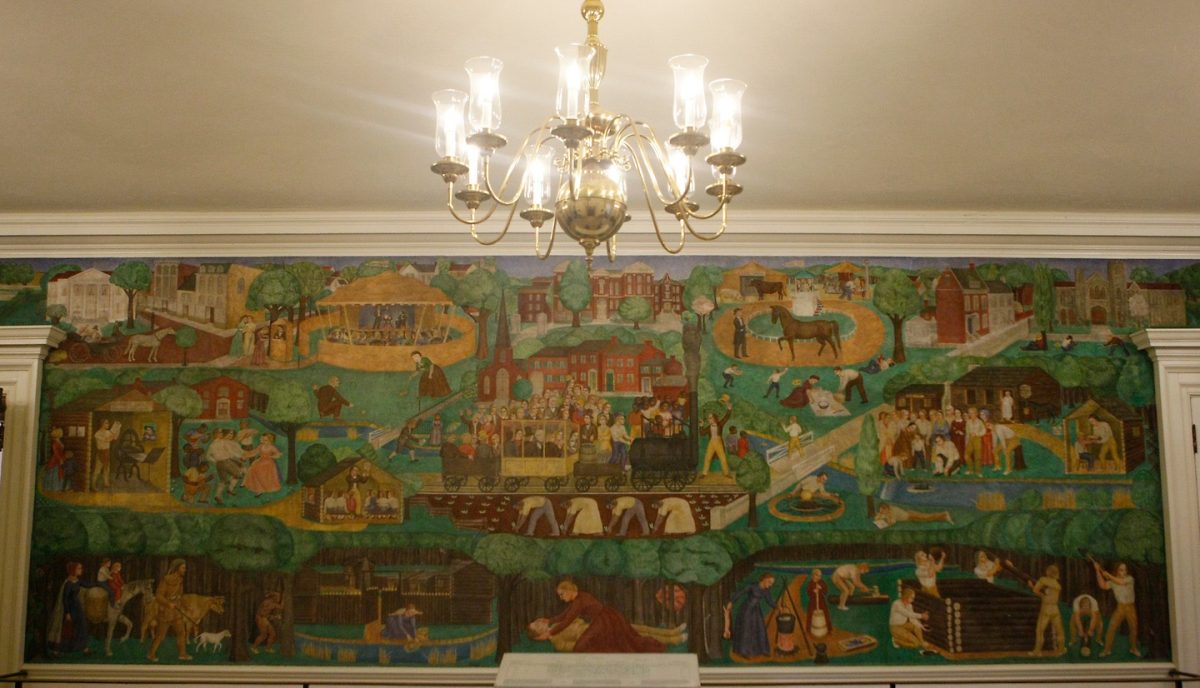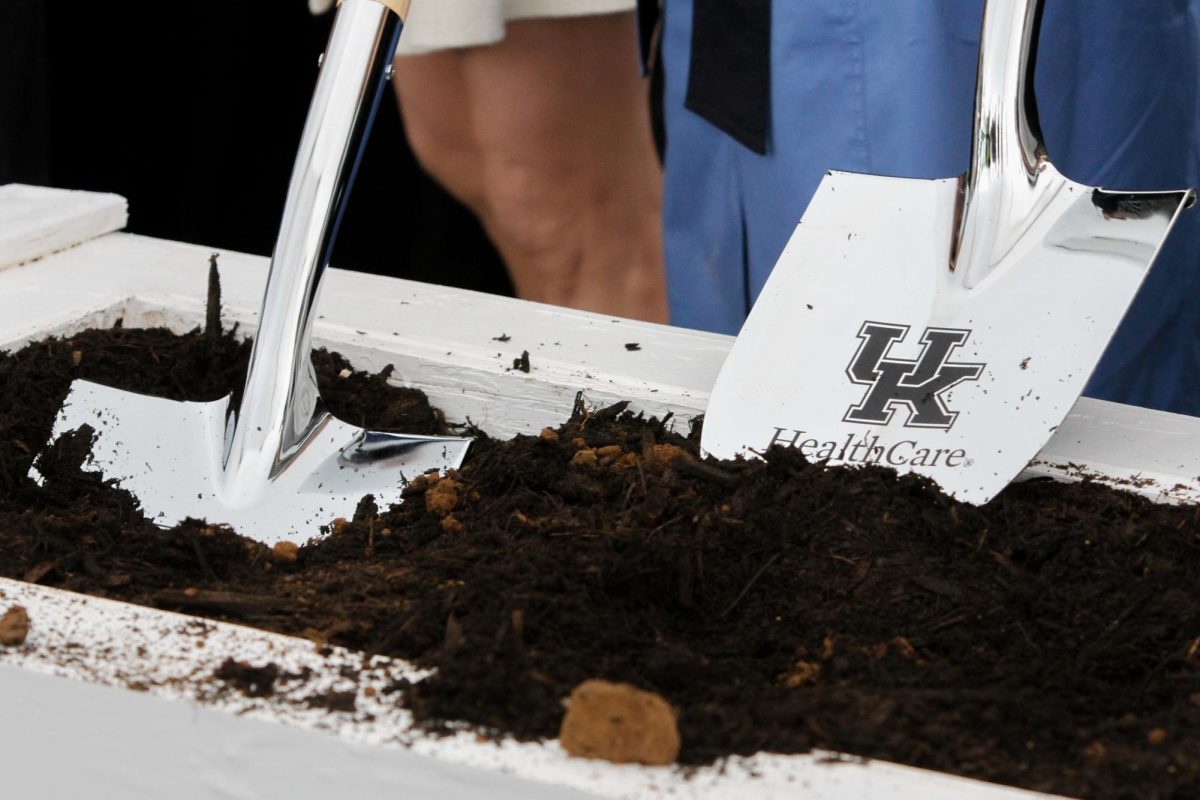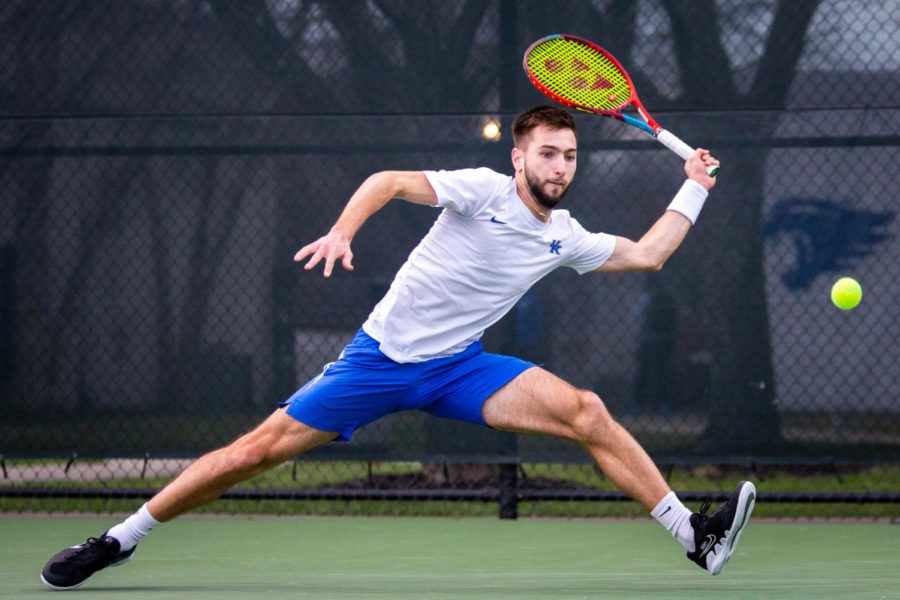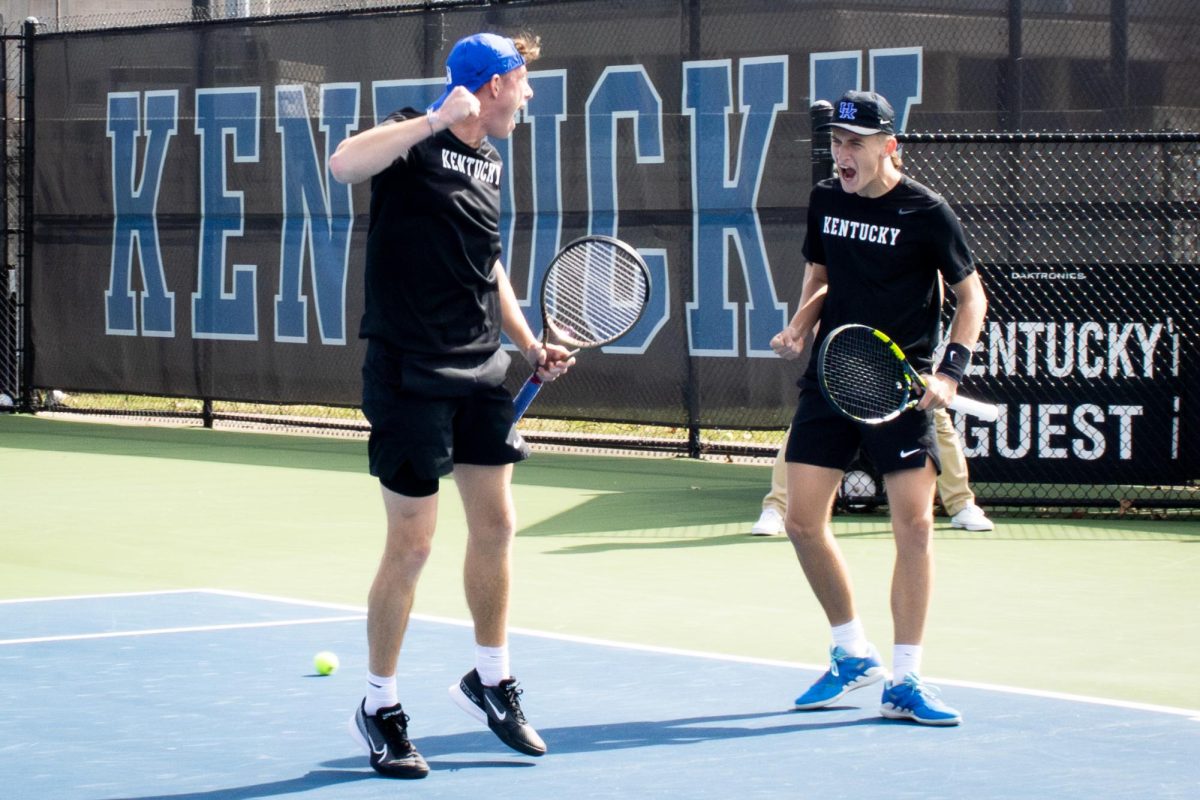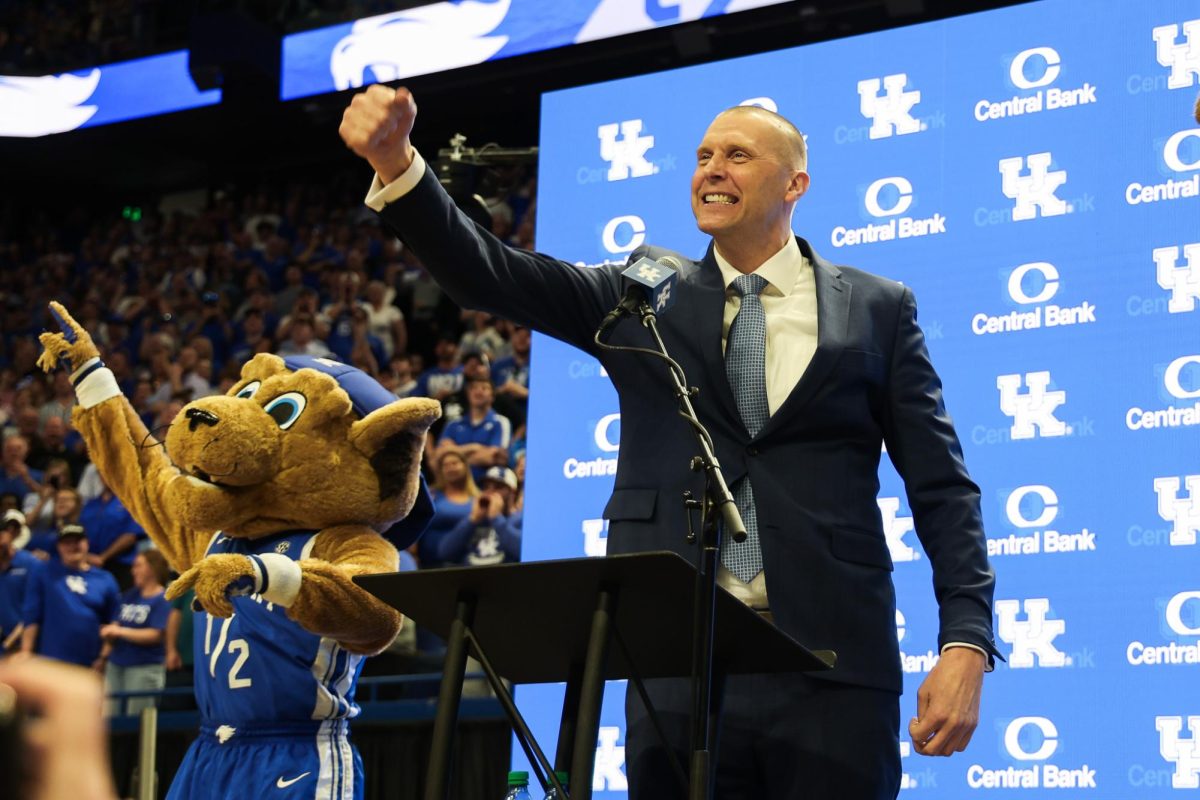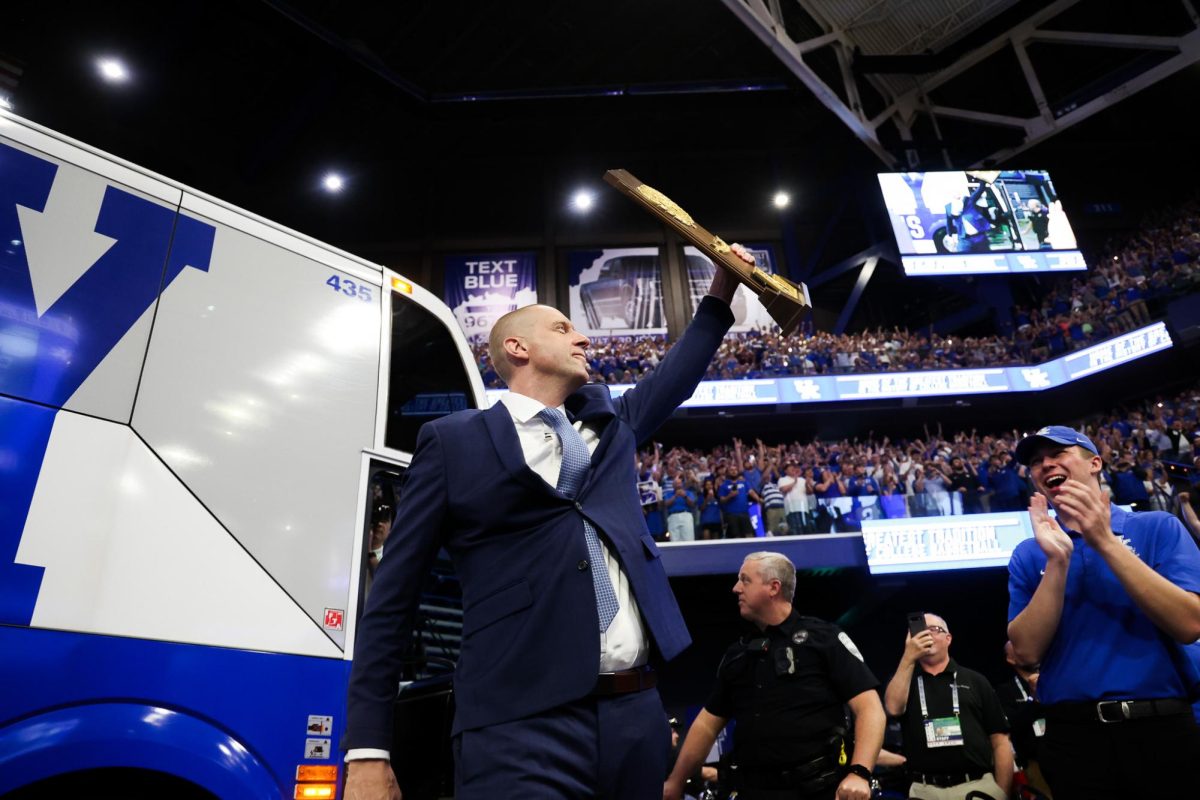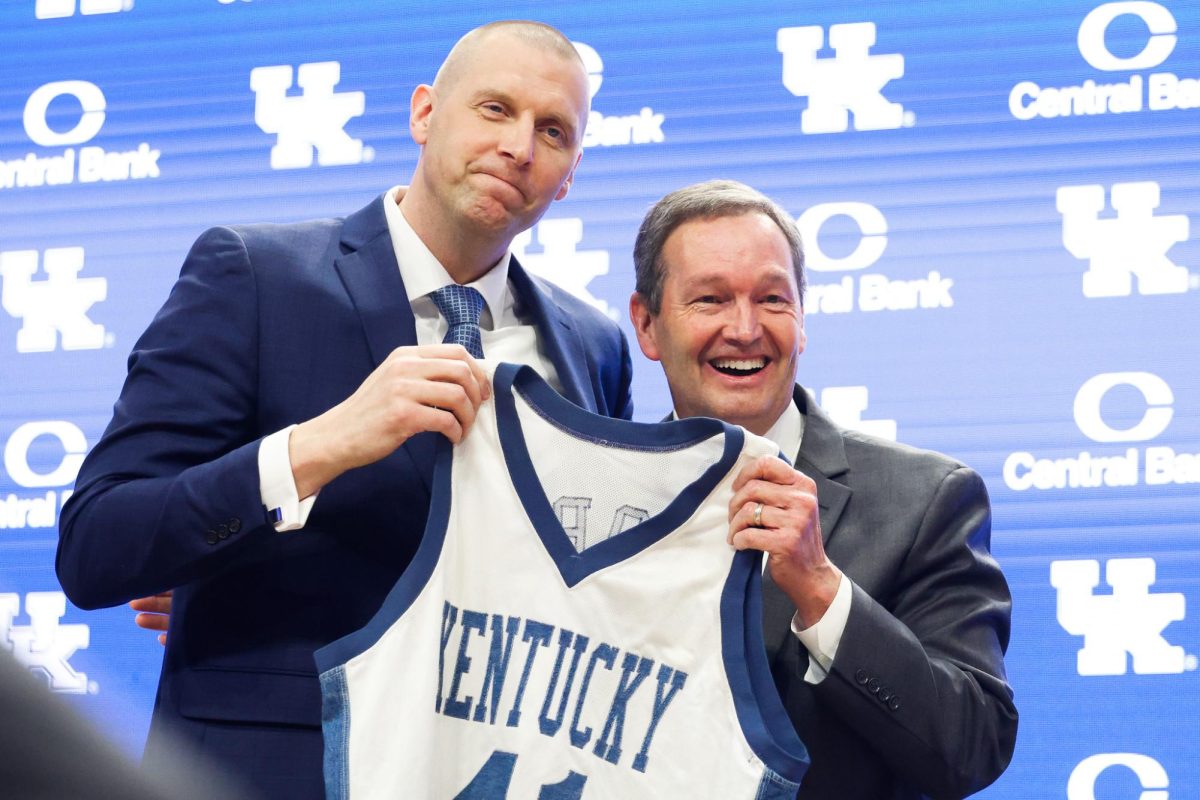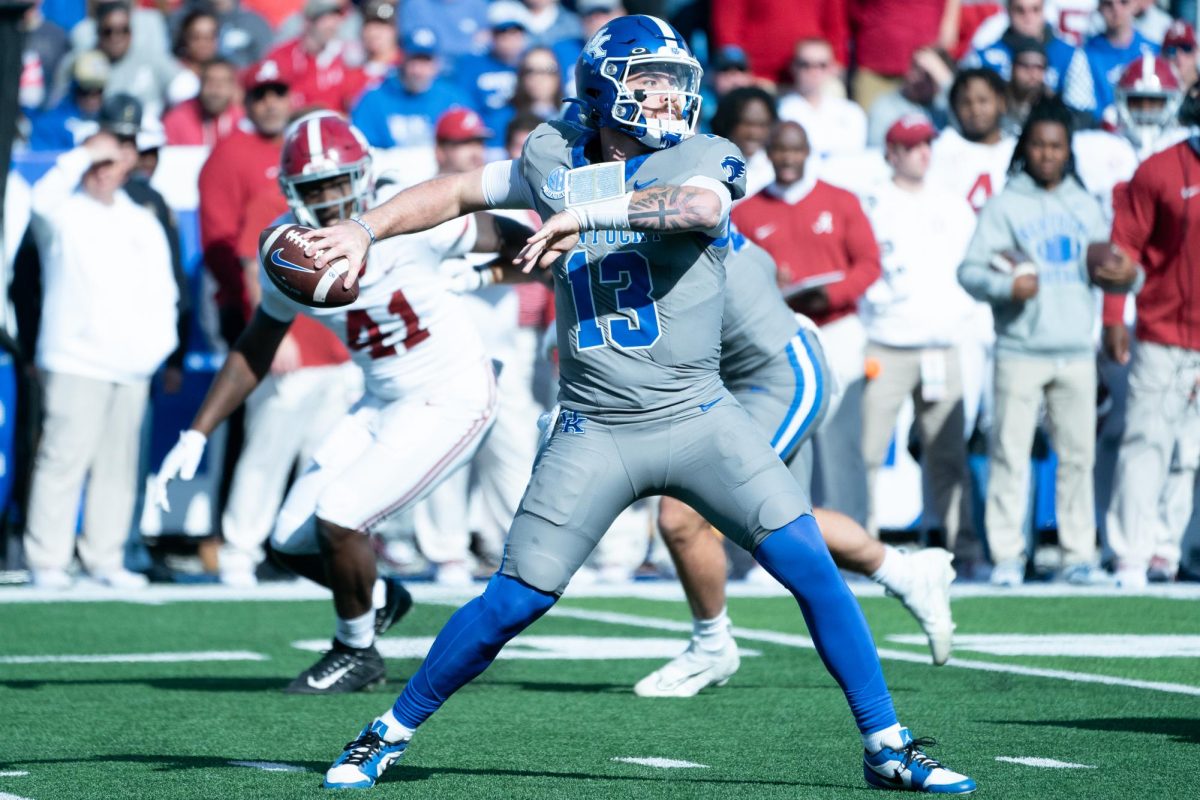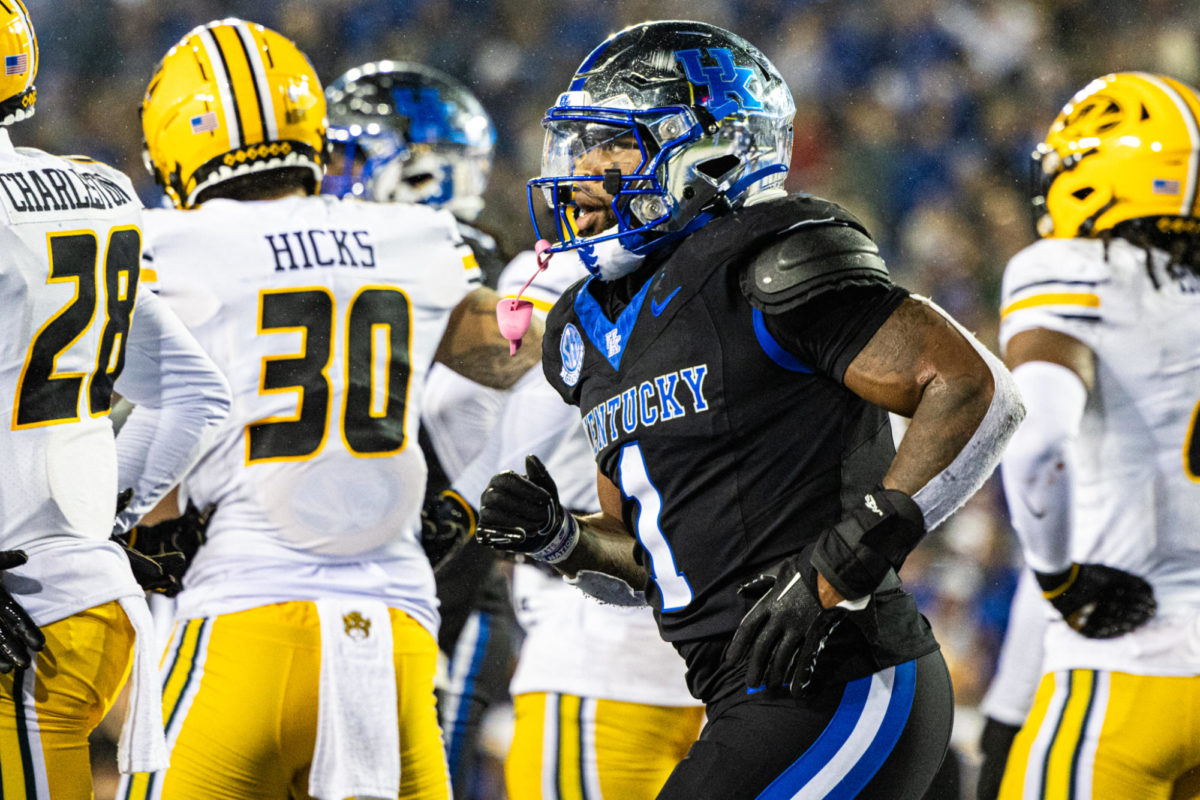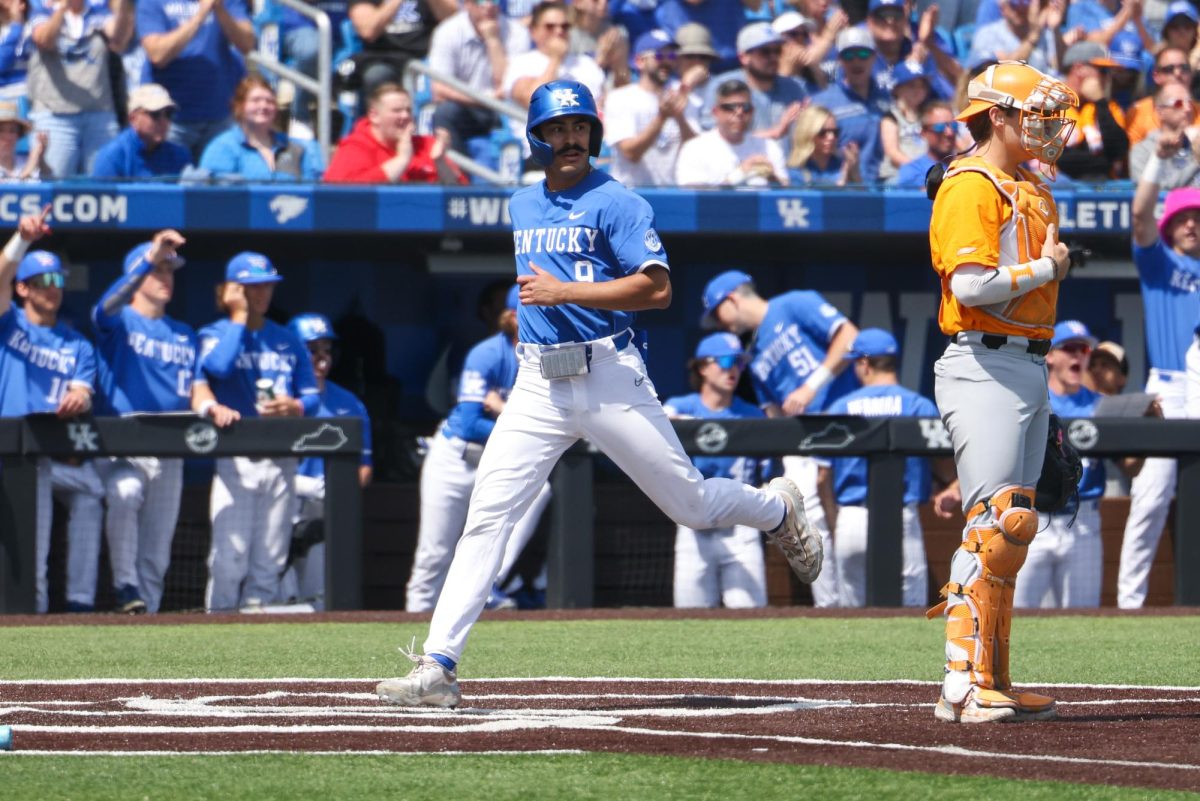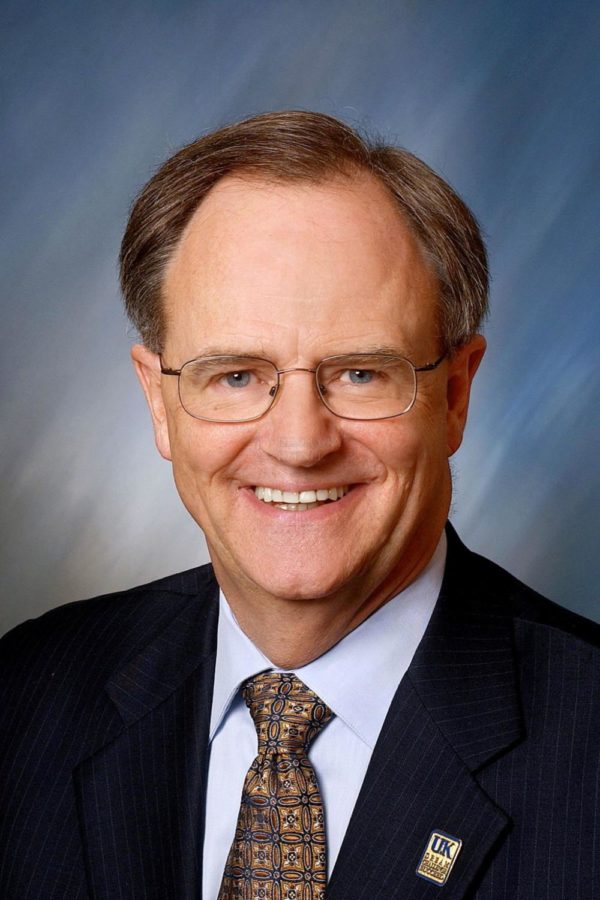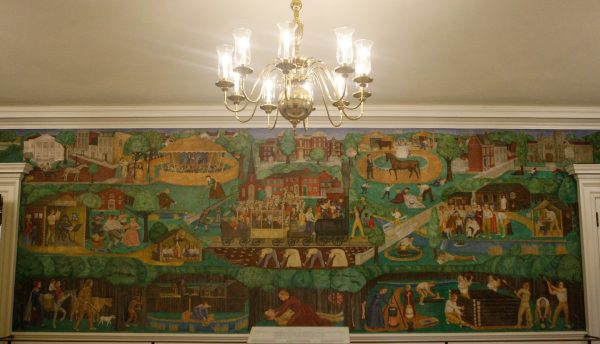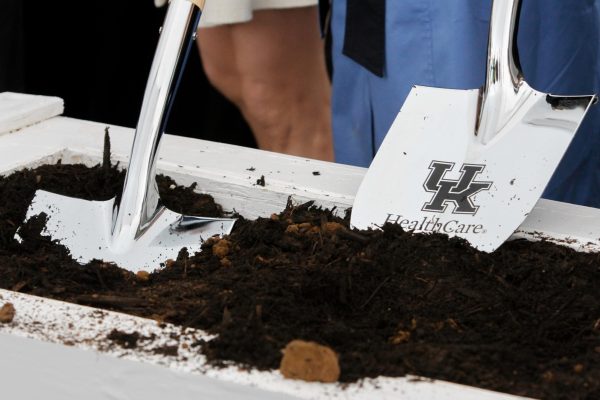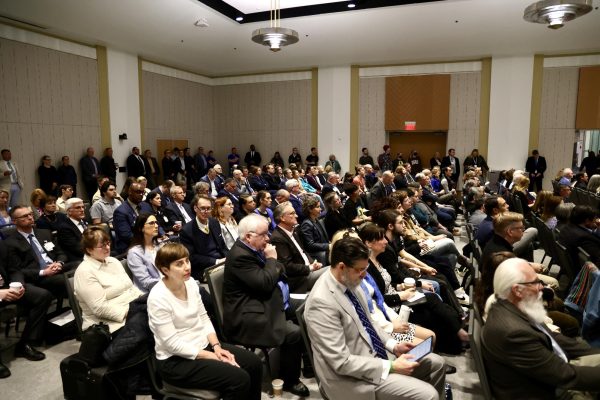Todd will pass Top 20 goals to successor, has few regrets
May 2, 2011
Lee Todd wants you to know that the University of Kentucky’s Top 20 mandate was not his idea.
That was actually former Gov. Paul Patton’s idea, when in 1997 he presented to the General Assembly a broader plan to overhaul the state’s higher education system. His plan included a mandate that UK become one of the Top 20 public research institutions in the country and came four years before Todd would become president of UK, and eight years before the Top 20 business plan was delivered to the UK Board of Trustees in 2005.
But if it was Patton’s idea, then it was Todd’s crusade. Nothing will affect Todd’s legacy more than UK’s ambitious Top 20 goal. Now, Todd knows he’s leaving the university with a legacy that has yet to be determined or understood.
“I think (Top 20) will be a part of it for sure and I would hope that they focus on the strides that we made in that direction, more so than that we haven’t been able to make a lot of progress in the measures because of the situations that we had,” Todd said.
“But it will certainly be something that will be part of the legacy, and I’m fine with that. Because we’re a lot better institution having strived to achieve that than we would have been had we not had that.”
***
If Todd were a basketball player, he would probably be listed in the media guide as being 5-foot-11. But privately, those who knew him would tell you that he doesn’t stand much more than 5-foot-9 on a good day.
Even today, after nearly a decade helming the state’s flagship institution for higher learning, he looks more like a professor walking hurriedly across campus on his way to a 9:30 chemistry class than the face of a university.
In fact, earlier in life, he was an engineering professor at UK. Then he started two businesses of his own, each of which went on to be wildly successful. But when his alma mater came calling, he didn’t hesitate. There was nothing he would rather be doing than the job of UK’s 11th president.
“I often say I’ve been fortunate enough to live out several dreams,” he said. “I married my high school sweetheart, I graduated the University of Kentucky, I graduated MIT, taught at UK, started two businesses, and then being president. It has been kind of a building process, to get to this job.”
But Todd’s dream job wasn’t always a smooth ride. In his first year in office, he had to face the NCAA for recruiting violations committed by the football team before his arrival. That was the most trying time for him. After, he pledged that the athletic department would remain off probation during his time here — a promise he kept.
Todd would later face other tough roads. After the state legislature funded the Top 20 business plan in the early years of Todd’s tenure, the recession hit the Commonwealth hard. The plan called for funding to escalate by $18 million a year, but that increase didn’t come. The same legislature that mandated UK become a Top 20 institution backed away from its financial support of that goal.
“I’ve tried to hold the state responsible for helping us achieve (Top 20),” Todd said.
Tuition went up. Pay raises for staff and faculty were stalled. Though Todd had planned on giving raises to staff when the Top 20 plan was written, they were withheld when the additional state funding that was initially planned on dried up. Ernie Yanarella, a political science professor who served as faculty representative on the Board of Trustees from 2006-10, saw the challenge Todd faced in Frankfort in those years.
“I think that (Todd) wished that Kentucky was like North Carolina,” Yanarella said. “North Carolina, some decades ago, made a basic decision to support higher education as an important element of improving the quality of life of North Carolinian citizens. … We don’t have that in Kentucky.”
Patton feels differently. Now the president of Pikeville College, he doesn’t criticize the state for failing to provide funding during an “unprecedented” financial crisis. He’d rather focus on Todd’s determination to meet the goal set by the state legislature even in the face of tremendous obstacles.
“Governors and legislators can set all kinds of goals, but somebody has to implement them. You have to have boots on the ground,” Patton said. “Rather than ignore that goal, he has pursued it even in the most difficult times. … It would have been easy for him to say ‘If you’re not going to give us the money to fund this plan, then forget about it.’ That’s not the path he took.”
Whether the state provided all the support it could for the Top 20 plan is still hotly contested. Regardless, the funding from the state never returned to the levels that were called for in the business plan. The national economy has never fully recovered, and neither has the state. Todd’s time, once marked with promise and a lofty goal, will now end with several questions unresolved.
“It will be seen as a tenure of great challenge, of serious effort to engage that, and a measure of tragedy,” Yanarella said. “In some respects, it’s like a Shakespearian tragedy, where at the end of the play, what do they do? They carry out the dead bodies. The most formidable body is the Top 20 plan. It has failed.”
***
When Todd enters a room, it never takes long for him to find a friend. He’s often the last person to leave a reception, talking on and on with someone whose name he just learned an hour ago. People talk to him about the university, ask him about starting their own small businesses, and for advice being an engineer. No matter where he goes, he’s not a stranger.
“I think he comes across as a thinking social person in a sense that he seems to genuinely enjoy the limelight,” Yanarella said. “He certainly has no trouble talking with anyone one-on-one. He also is someone who comes across as quite self-reflective.”
Not bad for a guy who holds nine patents for things with names like “Dual Reflected Energy Beam Alignment System,” or “Method of an Apparatus for Exciting Luminescence in a Cathode Ray Tube Having an Image Screen Composed of a Material That is Both Cathodochromic and Cathodoluminescent.”
“He grew up in Hopkins County, Kentucky, and a lot of the small town ways stayed with him,” said Jim Newberry, who worked with Todd while serving as Lexington mayor from 2006-2011.
It’s his personable nature that has endeared him to almost all who have come into contact with him during his tenure. Students especially can appreciate his fervor for the university and the state.
“I refer to him as a student’s president,” said Ryan Smith, Student Government president for two terms from 2009-11. “I think we’ve been very fortunate as students to have someone who at his core cares about students.”
Todd is also a tireless worker. He doesn’t arrive at his office much earlier than any normal university employee, but often works so late that his wife says she worries about him falling asleep at the wheel while driving home.
All that work has led to some significant improvements in his time here. Even if the faculty has been frustrated with the lack of pay raises, research funding has improved. Todd is proud of many of the administrative hires he has made, and is proud of the improvements in the medical center as well. He takes pride in the improvement in the quality of students, the changes in the undergraduate core curriculum, and the university’s outreach into rural communities.
But none of that will be able to overshadow the Top 20 plan.
“The times have not been kind to him,” Yanarella said. “His intended legacy was a plan in place and a funding formula for achieving the overriding goal of that plan — Top 20 status for this university among public institutions.”
***
As Yanarella describes it, the funding formula that was designed to help UK achieve Top 20 status is now broken beyond repair. When it fell apart, so did most of the hopes for the university becoming an elite public research institution.
Todd doesn’t feel that way. He’s still hoping for change, for improvement, for UK to inch closer to Top 20 status. His is a legacy that won’t be fully formed until 2020 — unless the number was never the point. If the goal wasn’t in fact the number, but the strides made by the university in an effort to reach the number, then the Top 20 plan has already been a success.
“More important than the numerical goal is steady progress towards improvement and excellence,” Patton said.
When Lee Todd leaves, the Top 20 business plan — and Todd’s legacy — will be placed in the hands of his successor. He’ll leave the university with some regrets, but he’ll still remember what was accomplished in his time here.
“Neither I nor Patsy grew up ever thinking we’d have a job like this in our lives,” Todd said. “The regret would only be that were not able to provide the resources to the people that we had, we had to raise tuition more that we wish we would have to accomplish the things we did. But I have no personal regrets, I’m just glad I decided to go for the position, honored to have it, and we’ll look back on it as a time when we tried to make a contribution, and I hope we did.”



